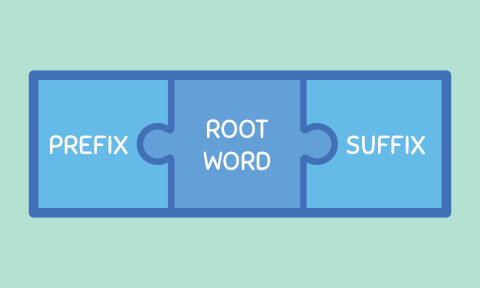Root words, along with prefixes and suffixes, are the building blocks of words. They often come from Greek or Latin, which inevitably leads to the question of why learn something from a language nobody speaks. Good question, with an even better answer: Your kid can use root words, along with prefixes and suffixes, to know how to pronounce and spell words. More importantly, they can use their knowledge to approximate the meaning and intent of an unfamiliar word.
How It Works
Let’s say your kid comes across the word biome. They have no idea what it means, but they do know that the root bio means “life.” So it’s something about living things. If they know that the suffix ome has to do with “a group or mass,” then they know, at the very least, that a biome is some sort of group of living things. While this isn’t perfect, it gives them some insight into what the passage might be about.
What about a word like autobiography? You’d be surprised how many kids have no idea what that means. But if they know that bio is “life” and graphy refers to “recording or writing something,” they quickly get to the meaning of biography as writing about a life. Add on the prefix auto, and if your kid knows that means “self or own,” they can recognize that an autobiography is the story of a life written by the person who has lived it.
Why Bother?
The reason to bother with root words, as well as prefixes and suffixes, is simple: With about thirty root words and a handful of prefixes and suffixes, your kid can approximate the meaning of thousands of words – not an exact definition, but rather enough understanding to know what the text is not about. That can help a lot when reading a difficult passage.
Bottom Line
When learning so few words can give your kid the tool they need to approximate the meaning of so many words, why not give it a try?
See more Vocabulary posts
